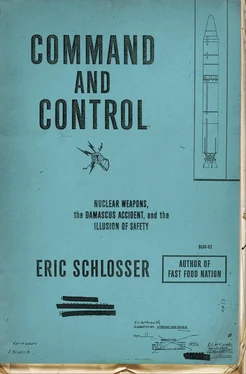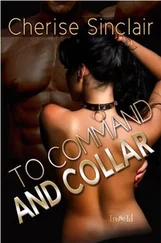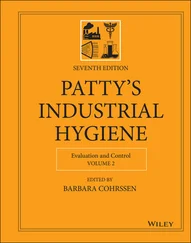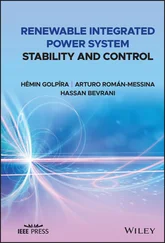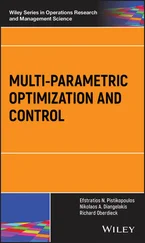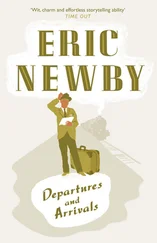Devlin saw Colonel Morris and yelled, “Please help, I can’t move.”
Morris carried Hukle for about one hundred yards, lay him down in a field, and then ran back for Devlin. He picked up Devlin and put him over a shoulder.
Devlin could not believe the strength of Colonel Morris. The two were about the same size, and yet Morris was running while carrying him. The man was forty-two years old. Devlin couldn’t stop looking at his face. Blood was pouring down it. Morris looked like he’d been shot in the head.
“I have to put you down,” Morris said. “I have to get to the end of the road, or they’ll leave without us.”
Morris lay Devlin in the field beside Hukle and ran off.
• • •
AT THE ACCESS CONTROL POINT, two members of the Disaster Response Force, Richard English and David Rossborough, were preparing to leave for Damascus. Mazzaro was on the radio to the Little Rock command post. Childers was standing nearby when he saw Silas Spann on the access road, sprinting toward them. Spann said there were still people alive on the complex; he’d just helped Hanson and Christal find their way onto the road.
A PTS maintenance officer, Captain George Short, drove up in a station wagon with Colonel Morris, whom he’d seen staggering at the top of the hill.
Colonel Morris wanted to go back for Hukle and Devlin. But Morris looked terrible, and the other men didn’t want him to go. Morris and Short started to do a head count, trying to figure out who was left on the complex. Hanson and Christal appeared, suffering from cuts and burns but strong enough to walk.
Childers grabbed Mazzaro’s gas mask. He didn’t want Mazzaro to be heroic and take any foolish risks — Mazzaro’s wife was about to have a baby. Childers climbed into the station wagon with Rossborough and English. Silas Spann got behind the wheel, and they drove back into the thick of it.
English was the only civilian in the Disaster Response Force. He’d spent twenty years in the Air Force, serving as a navigator in SAC bombers and helping to manage early tests of the Titan II. He retired in 1967, sold insurance for a year, hated it, and got a job at Little Rock Air Force Base that involved a lot of action — training people how to handle disasters, responding to disasters, advising the base commander what to do about disasters. He was fifty-seven, an old man by Air Force standards, and yet greatly admired by his men, who always addressed him as “Colonel.” Far from being over the hill, English was athletic and fit and looked a lot like William Holden, a 1950s movie star.
Rossborough was thirty-two, a sergeant from upstate New York. He’d been at a bowling alley when the Disaster Response Force was recalled. And that explained why, at quarter past three in the morning, on a burning missile site, in the middle of a Broken Arrow, Rossborough was wearing a red bowling shirt.
When the station wagon reached the top of the hill overlooking the complex, the road was littered with debris, and Rossborough told Spann to stop.
The reentry vehicle may have blown apart, Rossborough said, and pieces of the warhead could be scattered everywhere. You don’t want to drive over, or step onto, any of it.
Childers could barely recognize the place that he’d left just hours before. It looked like a war zone. The silo was on fire, the grass was on fire, the hills to the west of the complex and the woods to the north were on fire.
They reached the field where Morris had left Devlin and Hukle. Jim Sandaker was already there, with a fellow member of PTS Team B, Buddy Boylan. They were putting two injured men, Wallace and James, into a pickup truck.
Gene Schneider, another member of the PTS team, had run into the field and picked up Devlin. Schneider carried Devlin in his arms, like a child, as Devlin screamed in pain. His RFHCO suit was dragging along the ground, and every time it got caught on a piece of debris, it applied pressure to his wounded ankle. Schneider would stop for a moment, and Devlin would tell him to keep going. And then Schneider couldn’t carry him any farther. Rossborough and Childers ran over, grabbed Devlin, and placed him in the back of a large truck that Captain Short had driven over. Joseph Tallman, another PTS technician, carried Hukle to the station wagon.
Childers thought he saw the reentry vehicle near the road. Spann was standing right beside it.
“Get away from there,” Childers yelled.
Spann obeyed the order, and when all of the injured had been loaded into vehicles, Childers asked him if anybody was unaccounted for.
Only Livingston and Kennedy, Spann said.
“Let’s go, let’s get out of here,” people shouted.
Nobody was wearing a gas mask. Clouds of oxidizer seemed to be floating above the complex. A large object by the side of the road was loudly hissing; if it was the propane tank, it could explode at any moment. The place did not look or feel remotely safe. Everyone piled into the vehicles, drove off, and returned to the entry control point. Livingston and Kennedy had been left for dead.
• • •
COLONEL MORRIS TRIED TO CONTACT the ambulance, using a radio in one of the security police trucks. But the radio in the ambulance was part of the hospital net. It operated on a different frequency. A radio on the security police net couldn’t communicate with a radio on the hospital net. And the radio in the ambulance wasn’t working properly. Captain Donald Mueller — the physician assigned to the Disaster Response Force, who was in the ambulance — could speak to the hospital at Little Rock Air Force Base on the radio. But Mueller couldn’t hear anything that the hospital said in response.
• • •
MANY OF THE SECURITY POLICE officers and most of the Disaster Response Force were now in the parking lot of the Sharpe-Payne grocery store in Damascus. It seemed like a good place to regroup. Colonel Jones knew that injured airmen had just been found at the launch complex — but he couldn’t contact the ambulance, either. Speaking to Colonel Morris over the radio, Jones suggested that the injured should be brought to the grocery store.
• • •
CAPTAIN SHORT WAS FURIOUS THAT everyone had left the PTS crews at the site, that the ambulance and the security police were nowhere to be seen. Devlin was in great pain. He kept yelling for water, saying his skin was on fire. Devlin’s friends cut the RFHCO suit off him and tried to ease the pain. They didn’t have any painkillers or a medical kit. They emptied a cooler and covered Devlin in water and ice.
“Well, at least I’ve still got the hair on my arms,” Sergeant James said to Childers, “but what’s my face look like?”
Childers thought it wasn’t looking too good. It was burned so badly that most of the skin had peeled away.
Fed up with waiting, Major Wallace said the men should be taken to the nearest hospital. Almost half an hour had passed since the explosion. The injured were placed into a station wagon, a pickup, and a large ton-and-a-half PTS truck. They headed for Damascus.
As the trucks sped south on Highway 65, they passed the ambulance, which was heading north. The PTS truck carrying Devlin and Hukle turned around and drove back to the access road so that a doctor could determine how badly they’d been hurt. Sandaker, driving the pickup, just kept going.
Hukle was put on a stretcher next to the ambulance, and Devlin was examined while lying in the back of the truck. Dr. Mueller thought the injuries didn’t look too serious. But the diagnosis didn’t satisfy Childers or the members of PTS Team B. They took the station wagon and the PTS truck, departed for the hospital in Conway, about twenty-five miles to the south — and, amid the confusion, left Hukle on the stretcher beside the ambulance.
Читать дальше
